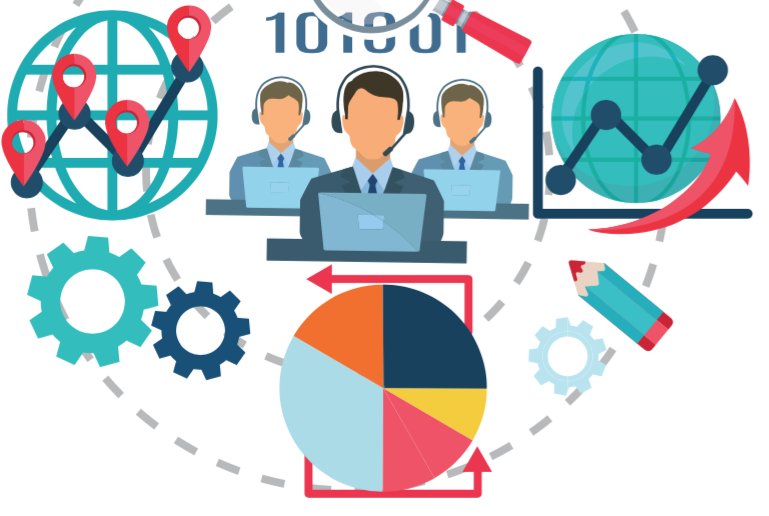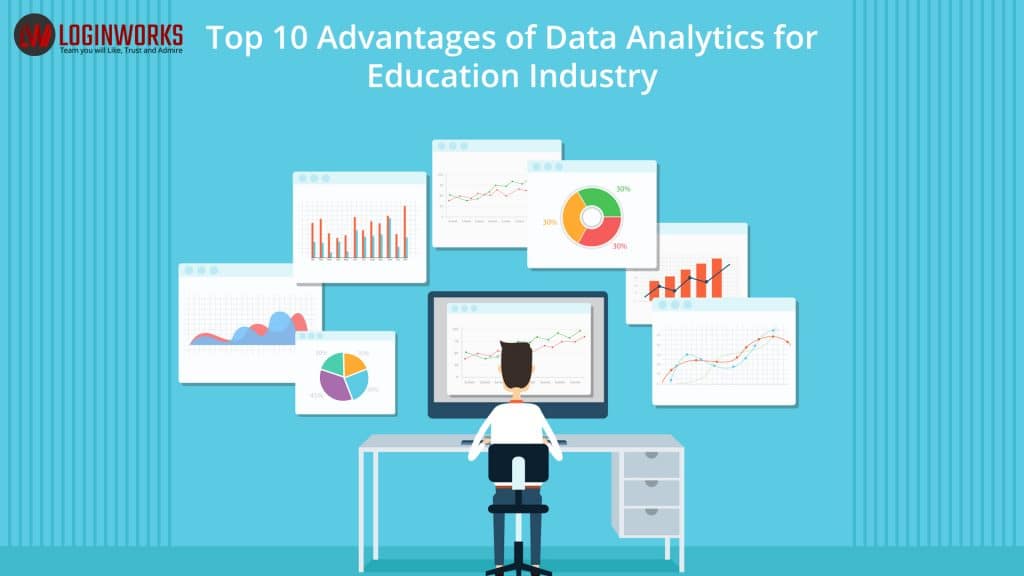The advent of data analytics in education has revolutionized the landscape of the sector and has opened up a world of novel technological approaches that have radically transformed the model of traditional teaching and learning. Data analytics have now seeped into the nerves of education system attaining groundbreaking and tremendous results. This has led to an increase in the creative skills of the students as well as their enthusiasm towards studies through the revolutionary reforms in the infrastructure and system of the once traditional methodology of education. Paradigms of education are now making a shift to incorporate mutual online, hybrid and blended learning and teaching. Data analytics has the ability to enhance the operational process of decision making besides making an assessment of educational performance against institutional objectives.
The advantages of incorporating data analytics into the education sector are numerous, 10 of which are enlisted below.
Jump to Section
1. Development on the Conventional Mode of Assemblage and Usage of Data
Institutes of education deal with huge volumes of data about the students assembled from application forms, admission forms, learning statistics and more. The student data includes intricate combinations of location, history of learning activity, student health issues and concerns, attendance percentage and curve, grades secured in every examination, reservation of seats based on institutional and national criteria and more. Secure storage of this data is highly essential but so is its intelligent aggregation, comparison, tracking and analysis which is only made possible by data analytics that helps to keep track of the progress of every student individually.
2. Data Analytics for Teachers and Mentors

An education system powered by data analytics helps institutional mentors in devising and crafting scholastic experiences and study curriculum in accordance to individual ability, learning approach, preference, and performance of students. The teachers can get individual feedback on the performance of every student and of the entire class and modify their mode of teaching in accordance to cater to the learning needs of every student in the class.
3. Data Analytics for Students
Data analytics for students refers to the collection and analysis of a huge volume of data assembled from students in order to track and assess the individual learning progress and academic record of every student besides predicting their academic future and locating and working on potential academic issues. In a conventional mode of learning, the content of the curriculum is created prior to the beginning of a course or session. Such a method fails to cater to the individual academic needs of every student. An intelligent curriculum can be built with data analytics that can modify and adapt to the scholastic requirement of every student. This process is way more developed and improved than a traditional generalized curriculum where some lag behind while others are forced to do so.
4. Data Analytics for Governance and Management of Educational Institution

Data analytics can make accurate and excellent supervision of attendance record and time of logging in and checking out for every student as well as a teacher. A program based on intelligent data analytics can even be used to record the attendance of students in the library, gymnasium and more.
5. Data Analytics for Prediction of Academic Future and Career
Education programs fueled by data analytics assist organizations and mentors in gaining in-depth insight into the academic progress of a student, along with an assessment of the student’s strengths and weak points. Data analytics can be efficiently employed to pinpoint on students who are at a risk of failure and then guiding them to pursue a path that will lead to academic success on basis of the performance statistics obtained through data analytics.
6. Data Analytics for Participatory Pedagogy
An educational environment powered by data analytics aids in keeping professors, teachers, students, assistants and everyone else working together on different projects on the same platform. Effective and efficient use of data analytics for the fusion of pedagogy and technology helps to develop a coherent, analytical and powerfully driven ecosystem that makes provision for real-time exchange of skills and knowledge.
7. Data Analytics for Pinpointing the Best Educational Practices
Data analytics can be efficiently employed to supervise and visualize the educational and behavioral pattern of every student. The data assembled can analyze and be used by teachers to determine the behavior and working process of the most successful students of the institution. The data is analyzed to pinpoint the best educational practices and then the rest of the students are encouraged to adopt the same practices and study in a similar approach to attain maximum academic success.
8. Data Analytics for Pitching in the Investment in Technology
The information, data, and statistics derived from data analytics assist the principals and directors of the curriculum in the preparation of technologically driven initiatives, electronic textbooks and online examination platforms. The knowledge obtained from data analytics can be employed efficiently in determining the expense that might be incurred in purchasing licenses of new software for the technological development of the educational institution.
9. Data Analytics for the Assessment of Academic Success

Data analytics can be efficiently employed to track the usage of technology, devices, hardware, and software through the entire day and then assessing the results to determine which delivers the best. Data analytics can assist educators most effectively in understanding and to analyze the ways in which students can access and digest the learning content. Data analytics can be employed to develop competency-based learning mode in which every student can perform at their own comfortable pace and succeed academically.
10. Data Analytics for Targeted International Recruitment
With the advent of data analytics in the educational sector, institutions can predict the nature of applicants and analyze the factors that can affect the process of application with enhanced accuracy. Such in-depth knowledge can permit educational institutions to modify their strategies of recruitment of candidates and allot funds in accordance with international students.
The inclusion of data analytics has been priceless. It has brought about colossal improvement in institutional revenue, a metamorphosis in the face of scholastic learning and has overall played a pivotal role in the enhancement of student performance.
- Business Intelligence Vs Data Analytics: What’s the Difference? - December 10, 2020
- Effective Ways Data Analytics Helps Improve Business Growth - July 28, 2020
- How the Automotive Industry is Benefitting From Web Scraping - July 23, 2020

